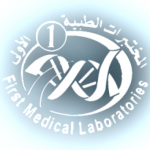C-Kit is proto-oncogene; a tyrosine kinase receptor that is important for cell development and growth. It is located in chromosome 4. It is expressed in interstitial cells of Cajal which are the pacemaker cells in the intestine. Tumors that arise from these cells are called Gastrointestinal Stromal Tumors (GIST). These tumor are one of most common causes of sarcomas in the abdominal cavity. The identification of its expression is important for the management of these cases. A new oncology drug STI-571 (available commercially) is competitive inhibitors for KIT protein. Tumors expressing this protein responds by stopping growth and shrinkage
Gastrointestinal Stromal Tumors (used to be called leiomyomas/ leiomyosarcoma) are mesenchymal tumor that arise most commonly in the stomach , small intestinal, esophagus and colon, and mesentery (in this order). Tumors that express this protein tend to behave in a malignant fashion
Staining for these tumor for C-kit, can be performed by immunohistochemical staining on normally processed specimen submitted in formalin
The hope that these tumors can be cured now is giving advances to molecular pathology in selecting proper treatment for tumors
Now, this test can be performed in the First Medical lab, to be the first lab in Jordan to perform such a test
We, in the First Medical Laboratory, are dedicated to
bring the best of laboratory medicine to clinical practice to Jordan
Dr. Hussam Abu-Farsakh
American Board of Anatomic & Clinical Pathology, and Cytopathology
